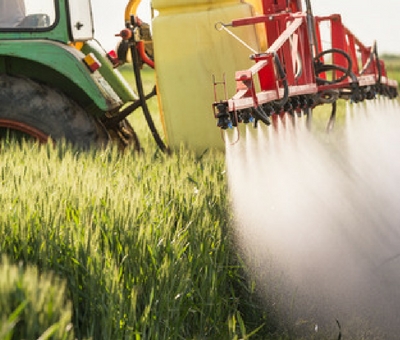
Pre-harvest glyphosate application is generally used for perennial weed control.Glyphosates in your diet are not likely to cause cancer. A new study conducted by the World Health Organization (WHO) and the United Nations Food and Agriculture Organization (FAO) found no link between cancer and Roundup Ready® food. The report, released in May 2016, states that “glyphosate is unlikely to pose a carcinogenic risk to humans from exposure through the diet.” In August 2016, New Zealand scientists reviewed the research, and agreed it should not be classified a carcinogen. The news comes at a time when consumers are actively demanding changes in food labeling, and the uncontrolled use of genetically engineered (GE) ingredients. Is confirmed scientific data enough to persuade consumers that these foods (commonly referred to by the more general name “GMOs”) pose no health risks?
Unfortunately, it is not.
Public opinion and glyphosates
“GMO foods cause cancer. I saw a study on the Internet where rats fed genetically engineered foods grew tumors and died,” a coworker responded when I asked what they thought of GMO food vs conventional food. The response was so emotional – a combination of anger, fear, and indignation. I dropped any idea of bringing up scientific studies to prove that there is no link between dying of cancer and eating GMO foods. My coworker went on to recite several more GMO myths, eventually calming down when these went unchallenged. The reality is that nicotine will do more harm than trace amounts of glyphosate in our food.
Once I got home, I Googled “GMOs kill rats study.” To my surprise, dozens of links appeared, confirming that GMO foods cause cancer and will kill you. The rat study was done by Gilles-Eric Seralini of the University of Caen. At first glance the study, complete with color photos of rats covered in golf ball-sized tumors, was alarming. Further articles copied and pasted the results and spread the alarm through anti-GMO groups. How had the World Health Organization missed this? They hadn’t; the Seralini study was retracted due to peer scrutiny and flawed scientific methods in 2013. As with any topic on the Internet, you can find articles to back up whatever you believe. In the case of the safety of consuming GMO foods, the Internet is confused, with both sides arguing to be heard.
What bakers need to know
Should bakers be concerned about the levels of glyphosate in wheat? Snopes debunked the idea of grain farmers saturating crops in glyphosate in the article Grains of Truth. Pre-harvest glyphosate application is generally used for perennial weed control. It can be used as a harvest management tool for dry down but the effects take much longer to appear. While it is possible for trace amounts of glyphosate to be found in flour, the WHO has stated that it is passed through the human body as waste in urine. If your product targets the health food segment, using an organic flour will provide the transparency consumers are seeking.
Since glyphosate was introduced in the 1970s the FDA has remained silent on its safety in our food supply. Glyphosate has not received a GRAS (Generally Regarded As Safe) designation. Prior to the new data from the WHO report, the FDA announced it was beginning to test for glyphosates in order to establish safe consumption limits. This may change.
As food scientists we support technological changes in the food industry. We know glyphosate is in our food. Independent labs have done testing for products not normally associated with the use of glyphosate such as eggs, milk, coffee creamer, etc. Consumers are demanding transparency in the food they consume. To gain consumer confidence education and interpreting the current results on the safety of glyphosate needs to happen in a way that is clearly understood and backed with the proper scientific method. The question consumers want answered is – will eating bakery products containing glyphosate cause cancer or other disease in humans? Share these results from the WHO and FOA reports, as they are an important step in gaining consumer confidence and assuring the safety of foods containing glyphosate.
Have more questions on the WHO results? Check out the FAQ page on food safety and glyphosate.

